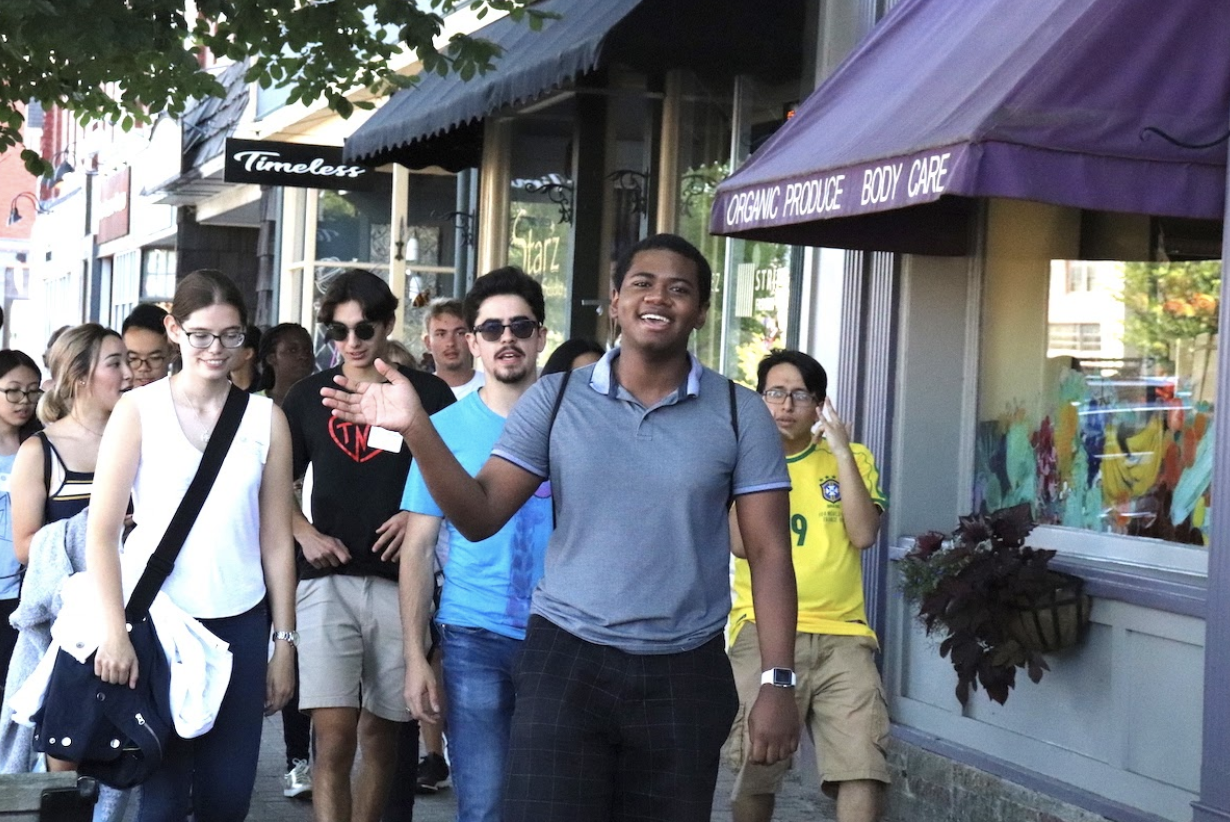International students will be exempt from U.S. travel bans this fall
April 29, 2021
 Courtesy of Bowdoin College
Courtesy of Bowdoin CollegeFederal officials announced late Monday that international students from Brazil, China, Iran and South Africa will join students from Europe in being exempt from the nation’s COVID-19 travel bans in the fall—a long-anticipated move that will clear a significant roadblock in the return of many international students who left for their home countries at the start of the pandemic.
The new policy, first announced on the State Department’s website, exempts all F-1 and M-1 students from a series of travel bans enforced by the Trump and Biden administrations since early last year. The bans bar entry of any foreign national who had been in designated countries for the prior 14 days, but the new policy automatically enrolls students under the department’s National Interest Exemption (NIE) to the bans, alongside vital personnel for critical U.S. infrastructures and journalists. Khoa Khuong, associate dean for upperclass students and international student advisor, shared this development with international students in an email Tuesday morning.
“Earlier today, U.S. Department of State (DOS)…[expanded] certain NIE eligibilities to all countries subject to US geographic COVID-19 entry bans,” Khuong wrote. “This is great news!”
Under the Trump administration, the State Department had already carved out this exception for students from Europe last summer. Combined with the Biden administration’s work, this will allow all students with valid visas to be cleared for entry at the border within a month of the start of the fall semester.
“Students with valid F-1 and M-1 visas intending to begin or continue an academic program commencing August 1, 2021, or later…may enter the United States no earlier than 30 days before the start of their academic studies,” the State Department website reads.
However, the updated policy does not include mention of new visas. At the height of the pandemic, new students were unable to obtain visas because U.S. embassies and consulates were forced to close. Even as they start to reopen, students may face additional challenges scheduling visa interviews.
“Last year the U.S. embassy canceled my visa appointment, so I could not go to campus and I had to study remotely,” Chengkai Gu ’24 wrote in an email to the Orient. “The time difference was quite problematic for me.”
A native of Shanghai, China, Gu has managed to secure a visa appointment and plans to come to campus for the fall semester.
“I read a lot when I am off-campus, and I enjoy it… On the flip side, I don’t get to meet new friends, which is disappointing,” Gu wrote.
Prior to this announcement, students restricted by the travel bans would most likely need to “quarantine” in a non-designated country for 14 days to meet entry requirements, a condition that comes with great financial and practical costs. By eliminating such requirements, the new policy will positively impact international student enrollment rates across the U.S.
Editor’s note 04/29/2021 at 11:39 p.m.: This article has been updated for clarity.

Comments
Before submitting a comment, please review our comment policy. Some key points from the policy: